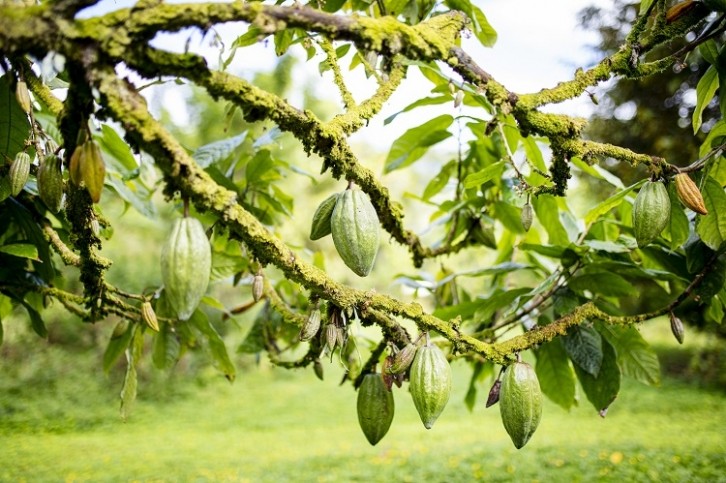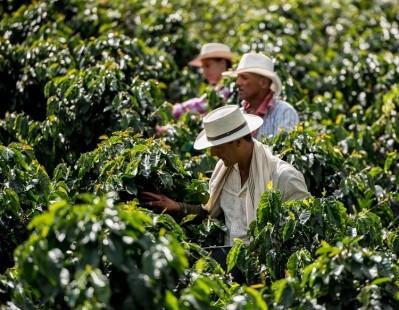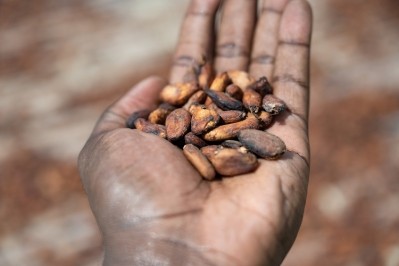Collaboration over competition? Cocoa companies push for equitable farming

Despite farmgate prices rising in Ghana and Côte d’Ivoire from 1st October 2023, the Living Income Reference Prices (LIRP) remain unmet, cocoa companies including Tony Chocoloney and Fairtrade argue, prompting them to urge for better corporate responsibility to pay farmers an equitable share of profits.
“Tony’s and Fairtrade are aligned regarding the calculation of the Living Income Reference Prices (LIRP) for cocoa – hence we are also in agreement regarding the fact that regulated farmgate prices are still too low,” Carla Veldhuzen, Senior Advisor Sustainable Livelihoods, Fairtrade International told FoodNavigator.
Today, cocoa companies state they are paying above the farmgate pricing through voluntary commitments and accelerator programmes. Yet, industry-wide collaboration is not fully here, prompting questions on whether achieving a fair and equitable cocoa industry without it is possible.
Cocoa industry collab
Eyes turn to whether the chocolate industry can and should collaborate to ensure fairness and support out of poverty for the world’s cocoa farmers.
“We believe that industry collaboration is absolutely key to solving the main issues in cocoa: living income, child labour and deforestation,” Joke Aerts, Inspire to Actress and Open Chain Lead at Tony's Chocolonely, told FoodNavigator. “It’s only by collaborating with other stakeholders that we will be able to scale up the impact and help farmers reach a living income,” says a Nestlé spokesperson.
Through national initiatives for sustainable cocoa (ISCOs), Fairtrade strives for cocoa-industry collaboration. Guidelines on responsible purchasing practices, including LIRP, are currently being agreed upon to promote among ISCO signatories.
Thandi Mbali, Senior Adviser at the World Cocoa Foundation (WCF), describes the organisation as having a “unique position at the centre of the cocoa and chocolate industry, governments, civil society and cocoa farming communities”. This enables WCF “to realise its vision by creating strategic relationships and collaborative programmes that deliver transformative impact and systemic reform”.
Though it focuses on collaboration, the organisation draws a line between communicating on cocoa in a way that it believes relates to corporate issues. Speaking to FoodNavigator, Mbali says: “As a membership organisation in the unique position of bringing together members across the cocoa and chocolate value chain, WCF does not comment on real-time cocoa pricing, which is a commercial matter for cocoa companies and the cocoa-producing governments.”
When asked how the chocolate industry can work together to ensure the LIRP is met, Michel Arrion, Executive Director of the International Cocoa Organisation, responds: “By putting their money where their mouth is”. Responsible purchasing practices are the solution.
However, widespread collaboration may be too ambitious and unnecessary. No more than ten companies operate in the market, representing 90% of the cocoa industry, Arrion relays. “We don’t necessarily need collective action but a combination of a few individual serious commitments,” adds Arrion.
Godiva-owned Pladis said they were not able to comment on the LIRP directly at this time. They highlighted their annual report and their relationship with the Earthworm Foundation for information on their work with cocoa farmers. The report cites one of its 2023 goals is to “continue regenerative agriculture pilot and develop financial incentives for farmers”.
Paying above limits
As part of its long-term voluntary commitment, Tony’s Chocolonely and other businesses that source cocoa through Tony’s Open Chain, including Pleese, Huel and global brands Ben & Jerry’s and ALDI, announced they will pay an additional 18% on top of the national price in Ghana and 44% on top of the national price in Côte d’Ivoire.
“We believe cocoa farmers should earn an income that allows them to maintain a decent and adequate standard of living for themselves and their families,” a Nestlé spokesperson told FoodNavigator, confirming that it has been paying the Living Income Differential (LID) since its inception in Côte d’Ivoire and Ghana and pays premiums for certified cocoa.
“We have also seen that voluntary industry commitment goes only so far, as most big companies say that they refuse to pay the LIRP until it is mandatory,” says Aerts. “That is why we also push for legislation that holds all companies accountable and includes living income as an obligation for buying cocoa,” Aerts adds.
Income accelerator programmes
Nestlé rolled out an income accelerator programme to help close the living income gap and reduce child labour risks. It strives to do this by encouraging changes in behaviour and rewarding positive practices within the home and on the farm.
The chocolate manufacturer estimated, at the launch of the programme in January 2022, that the living income benchmark was around €6650.69 per year. With 10,000 families in Côte d'Ivoire, Nestlé states its programme will expand in 2024 in Côte d’Ivoire and Ghana, reaching 30,000 families. Its ambition is to reach 160,000 cocoa-farming families by 2030.
“The first results are encouraging,” Nestlé’s spokesperson says. “Applying good agricultural practices such as pruning has helped increase the average yields of farms by around 20%, and a large majority of participants in the test phase have generated an additional source of income,” the spokesperson adds.
“The program has also had a positive effect on female involvement in decision-making in agricultural investments and revenues and on school enrolment rates,” the spokesperson continues following its July 2023 progress report. “These are encouraging results in our efforts to tackle the root causes of child labour in cocoa,” the spokesperson adds.
In April 2023, Hershey announced the launch of its income accelerator programme for cocoa farming households in Cote d’Ivoire. The programme supports increased incomes for cocoa farming households by providing cash transfers (CTs) and village savings and loan associations (VSLAs) investments.
By partnering with the Rainforest Alliance, Hershey will distribute mobile cash transfers of up to $600 per household per year to approximately 5,000 cocoa farming households within its supply chain. Additional collaboration with CARE and cocoa farmer cooperatives is behind its aim to bolster approximately 200 existing VSLAs in its supply chain and establish another 350 new VSLAs.
“A higher price for cocoa should become the industry norm,” Aerts expresses.























